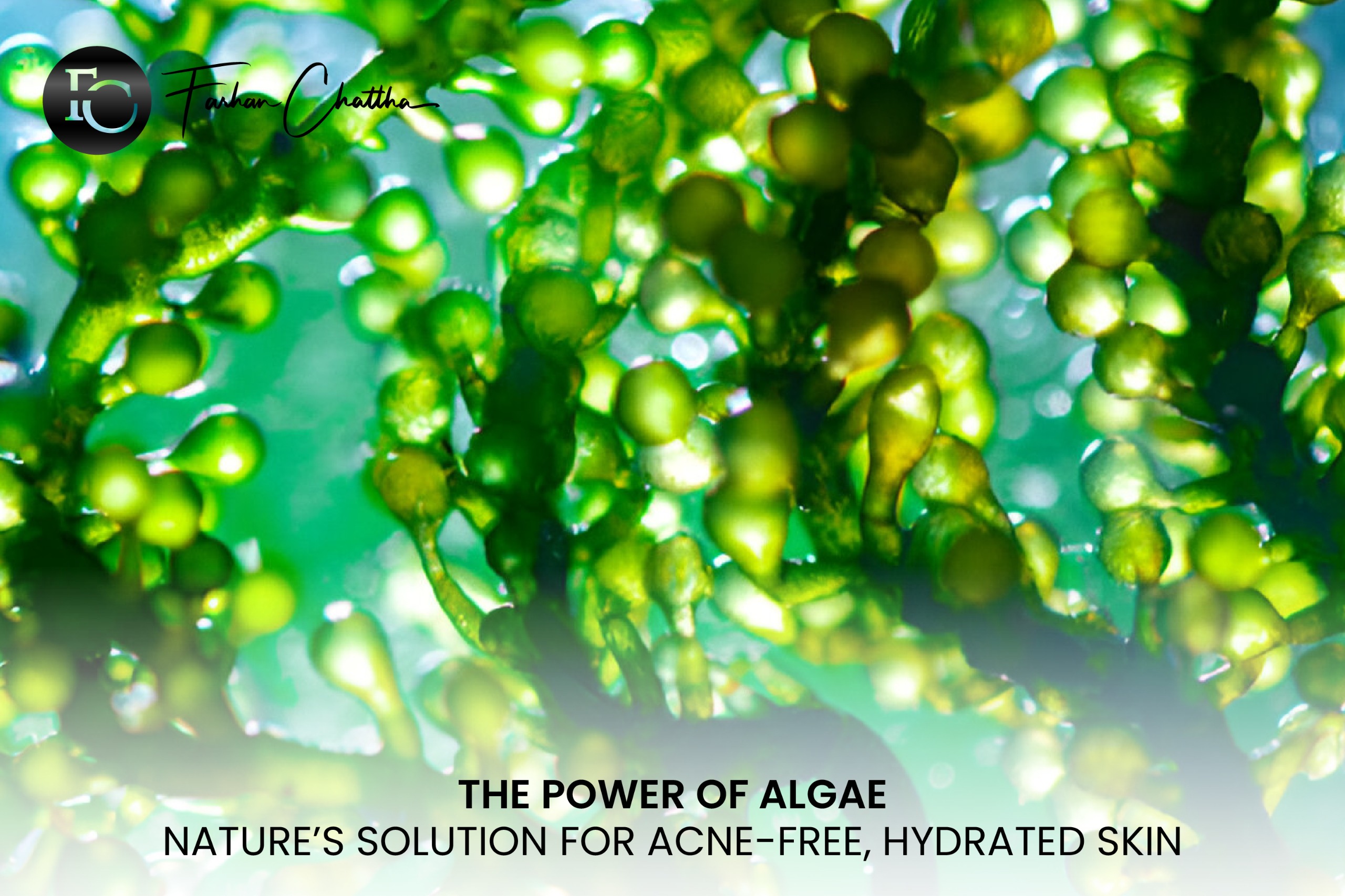Algae, a microorganism found in aquatic environments, has been harnessed for its remarkable skincare benefits. This natural ingredient has been shown to decrease acne, hydrate, and nourish the skin, revealing a radiant and healthy complexion.
What is Algae and Its Skincare Benefits?
Algae, a diverse group of aquatic plants, has emerged as a valuable ingredient in skincare. Rich in essential nutrients, algae offers numerous benefits for achieving healthy, glowing skin.
Key Nutrients in Algae:
1. Antioxidants: Neutralize free radicals, protecting skin from oxidative stress.
2. Vitamins:
– Vitamin A: Promotes cell turnover, reducing fine lines and wrinkles.
– Vitamin C: Boosts collagen production, and brightens complexion.
– Vitamin E: Hydrates, and shields against environmental damage.
3. Minerals:
– Calcium: Strengthens skin’s barrier function, and improves elasticity.
– Magnesium: Soothes inflammation, and enhances skin’s natural glow.
4. Amino Acids: Supports collagen production, and maintain skin’s firmness.
Skincare Benefits of Algae:
1. Anti-Inflammatory Properties: Reduces redness, and soothes irritated skin.
2. Improved Skin Elasticity: Enhances skin’s firmness, and suppleness.
3. Enhanced Collagen Production: Plumps fine lines, and wrinkles.
4. Protection Against Environmental Stressors: Shields skin from pollution, and UV damage.
5. Hydration: Locks in moisture, and supports skin’s natural barrier.
6. Anti-Aging: Combats signs of aging, and promotes youthful appearance.
7. Skin Brightening: Evens skin tone, and reduces hyperpigmentation.
8. Soothing and Calming: This relieves skin irritation, and reduces inflammation.
Types of Algae Used in Skincare:
1. Spirulina: Rich in antioxidants, vitamins, and minerals.
2. Chlorella: High in amino acids, vitamins, and minerals.
3. Dulse: Soothes skin irritation, reduces inflammation.
4. Irish Moss: Hydrates, supports skin’s natural barrier.
How Algae Decreases Acne?
Algae, a natural and versatile ingredient, has emerged as a valuable ally in the fight against acne. Its unique properties make it an effective solution for reducing inflammation, regulating sebum production, and preventing bacterial growth.
Algae’s Acne-Fighting Properties
1. Reduces Inflammation: Algae’s anti-inflammatory compounds, such as polysaccharides and polyphenols, soothe redness and swelling, reducing acne’s visual impact.
2. Regulates Sebum Production: Algae’s bioactive molecules help balance sebum production, reducing excess oil that clogs pores and leads to acne.
3. Prevents Bacterial Growth: Algae’s antimicrobial properties inhibit the growth of Propionibacterium acnes (P. acnes), the bacteria responsible for acne.
4. Exfoliates and Unclogs Pores: Algae’s gentle exfoliating properties remove dead skin cells, unclog pores, and prevent future breakouts.
Key Algae Compounds for Acne:
1. Fucoidan: A sulfated polysaccharide with anti-inflammatory and antimicrobial properties.
2. Alguronic Acid: A polysaccharide that regulates sebum production and reduces inflammation.
3. Chlorophyll: A natural antibacterial agent that reduces P. acnes growth.
How Algae-Based Products Combat Acne:
1. Face Masks: Algae-rich masks reduce inflammation, draw out impurities, and balance sebum production.
2. Spot Treatments: Algae-based spot treatments target individual pimples, reducing inflammation and bacterial growth.
3. Cleansers: Algae-infused cleansers gently exfoliate, unclog pores, and regulate sebum production.
4. Serums: Algae-based serums deliver concentrated anti-acne benefits, reducing inflammation and preventing breakouts.
Incorporating Algae into Your Acne-Fighting Routine:
1. Use algae-based products 2-3 times a week.
2. Combine algae with other natural ingredients (tea tree oil, aloe vera) for enhanced benefits.
3. Consult a dermatologist for customized advice.
Algae’s Hydrating Properties
Algae’s hydrating benefits:
- Locks in moisture
- Soothes dry, irritated skin
- Improves skin elasticity
- Plumps and firms the skin
Incorporating Algae into Your Skincare Routine
- Face masks: Look for algae-rich masks
- Serums: Algae extracts or oils
- Moisturizers: Algae-infused creams or gels
- Supplements: Algae-based oral supplements
Tips and Precautions
- Patch test for sensitivity
- Combine with other natural ingredients
- Consult a dermatologist for customized advice
- Choose sustainable, eco-friendly algae products
Conclusion
Algae’s unique blend of anti-inflammatory, antimicrobial, and exfoliating properties makes it a valuable addition to any acne-fighting routine. Harness its benefits to achieve clearer, healthier-looking skin.

